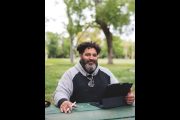
California physicians who dissent from the prevailing view of Covid-19 and its vaccines could have their licenses revoked under a recently passed law.
California Assembly Bill 2098 states: “It shall constitute unprofessional conduct for a physician … to disseminate misinformation or disinformation related to COVID-19, including false or misleading information regarding the nature and risks of the virus, its prevention and treatment; and the development, safety, and effectiveness of COVID-19 vaccines.”
A finding of “unprofessional conduct” would force the state bodies that license and regulate doctors “to take action against” the accused, the bill notes.
The bill, introduced in February by Democratic Assemblyman Evan Low, passed the Assembly in May and the Senate on August 29. It now awaits the signature of Democratic Governor Gavin Newsom, who has not taken a public position on it.
AB 2098 defines “misinformation” as “false information that is contradicted by contemporary scientific consensus contrary to the standard of care.”
But who gets to make such determinations? At one time, after all, the “standard of care” based on “contemporary scientific consensus” was to apply leeches to patients suffering a variety of maladies. Should doctors who thought bleeding patients dry wasn’t the best idea have been driven out of practice by the government?
“‘Misinformation’ is a highly dubious and debatable category,” observed Reason’s Robby Soave. “The scientific consensus has often expressed views relating to COVID-19 that were later contradicted.”
Furthermore,
Science is a deliberative process, and medical professionals need to be allowed to dissent from mainstream orthodoxies and challenge dominant perspectives. Patients deserve expert care, but it’s unreasonable for the government to compel ideological conformity in this field.
Besides, the state has shown no particular aptitude for discerning what constitutes genuine misinformation. On the contrary, government actors have frequently instructed social media companies to be wary of perfectly legitimate points of view.
While the American Medical Association (AMA), the epitome of state cronyism and “consensus” medicine, naturally supports AB 2098, other medical groups and individual doctors beg to differ.
“Without California doctors being free to speak their mind and educate the public, regarding COVID-19 or vaccination or any other controversial topic, no other public health laws will matter as legislators will not be able to obtain knowledge from a breadth of physician and surgeon opinions, and the public will not be able to obtain their doctors’ honest opinion — because doctors who think and act differently from the contemporary ‘applicable standard of care’ will fear losing their medical license,” Physicians for Informed Consent founder and president Shira Miller stated in a March letter to California lawmakers.
“Public health is not achieved, and scientific knowledge does not progress, by censoring dissenting physicians and surgeons or anyone else,” Miller added. “AB 2098 is anti-doctor, anti-public health, anti-science, and anti-free speech.”
In a letter to Low, California Health Coalition Advocacy raised similar objections. “Science and medicine have historically been advanced through minority voices,” penned president Valerie Noble. “The stifling of dissenting opinion will have long lasting effects on the advancement of health care.”
Others have warned that AB 2098 would take away patients’ rights to “informed consent” because their doctors could no longer give them all relevant information concerning Covid-19.
“Criminalizing informed consent is the last step before medicine is weaponized — as a murderous, government-dictated endeavor,” Vera Sharav, founder and president of the Alliance for Human Research Protection, told the Defender.
Meryl Nass, a Maine doctor whose license is already under attack because of her dissenting views on Covid-19, told the Defender that AB 2098, if it becomes law, “will be a first-in-the-nation attempt to legislate around the First Amendment.”
The First Amendment may, in fact, be the one thing that stands in the way of the bill. Wrote Soave:
The compelled speech component of AB 2098 would probably perturb the Supreme Court. Even some legal experts who support the bill’s goals concede that it will have a hard time surviving scrutiny.
“Initiatives like this will be challenged in court and will be hard to sustain,” Michelle Mello, a professor of law and health policy at Stanford University, told The New York Times. “That doesn’t mean it’s not a good idea.”




